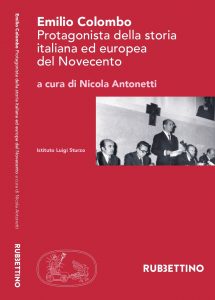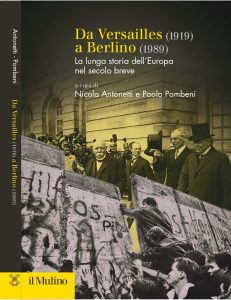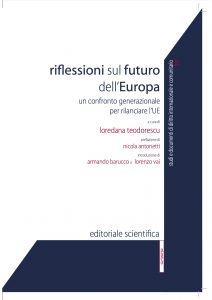.
Publishing activity
A vocation that is proposed today as a continuation of the publishing activities undertaken by the same founder who, during the period of opposition to fascism, had given life to the small Seli publishing house. Depository of all the Sturzian production, the Institute has always been involved in numerous initiatives of dissemination and scientific promotion, in the historical and sociological field on the history of the twentieth century, whose results are disseminated in volumes edited by the Institute.
Publications
- La politica europea e italiana di Piero Malvestiti, edited by C. Argiolas and A. Becherucci, (Edizioni di Storia e Letteratura, 2018). The volume collects the contributions presented during the reflection day organized at the headquarters of the Historical Archives of the European Union in Florence on the occasion of the public opening of the archive of Piero Malvestiti. Thanks to the interventions of representatives of European and national institutions, academics and relatives, the volume makes due due to the important contribution of Malvestiti in favor of European integration.
- Andreotti, Gheddafi e le relazioni italo-libiche,edited by M. Bucarelli and L. Micheletta (Edizioni Studium, 2018). The contributions collected in the volume, the result of the study of the documentation of the Giulio Andreotti Archive kept at the Luigi Sturzo Institute, are dedicated to various aspects, moments and problems of Libyan policy conducted by Italian governments.
- Aldo Moro nella Storia della Repubblica, edited by N. Antonetti, (Il Mulino Edizioni 2018). The purpose of the book is to broaden the knowledge on the governmental activity carried out by Aldo Moro and to renew the public image that he has, often incompletely, constructed. In these pages are then recomposed the multiple political commitments of his life, tragically broken by the terrorist madness, turning right attention to its rich spirituality. Moro was the “man of possibility”, who cleverly explored the direction of the profound currents of society, not just Italian, and, as far as possible, tried to channel them within the democratic evolution of the country. The set of essays proposed here is therefore a precious tool, with the awareness that it is not easy, due to the density of its cultural and political reflection and the different experiences that make up its life, to examine the work of a politician of the caliber by Aldo Moro, whose identity, among other things, is hardly homologable to that of the ruling class of his time.
- Attualità del popolarismo?, (Quaderno Zero – Editoriale Scientifica, 2018). On the occasion of the celebrations for the centenary of the foundation of the Italian People’s Party and the anniversary of the death of Luigi Sturzo, the Institute takes up the activities of the historical and prestigious magazine “Civitas” with the Quaderno number zero dedicated to a reflection on the relevance of popularization. The book will soon be followed by other volumes focusing on the salient issues of contemporary life.
- Luigi Sturzo. A tutti gli uomini liberi e forti, edited by N. Antonetti, (Rubbettino Editore, 2018). An historical essay on the political contents related to the unpublished preparatory documents of the “Appeal to all free and strong men”, of the Program and the Statute, kept at the Luigi Sturzo Institute Archives, with a collection of biographical profiles of the signatories of the ‘Appeal.
- Le culture della Repubblica per l’Europa, (Quaderno 1 – Edizione Scientifica, 2019). Europe, democracy, freedom: these are the key themes of the study day of March 7th 2019 launching the Manifesto “The cultures of the Republic for Europe” signed by numerous Foundations and Cultural Institutes. The interventions and contributions contained in this agile volume contain the reflection proposed to launch a debate on the main challenges to be faced in Europe: it is urgent to defend European democracy against the dangers that arise when the cornerstones of coexistence between the European peoples are questioned.
- Il Municipalismo di Luigi Sturzo, edited by N. Antonetti and M. Naro (Edizioni il Mulino, 2019). In the volume the first concrete expression of Luigi Sturzo’s political commitment is studied, namely the municipal program with which, at the beginning of the twentieth century, he intended to bring Catholics back to being actively present in society. For this reason, in Caltanissetta, between 5 and 7 November 1902, he gathered the municipal and provincial councilors who had been elected in civic lists of Catholic inspiration, already looking at a municipal party capable of guaranteeing an effective representation of the social ideals of Christian matrix in local authorities. In fact, on that occasion, the embryo of what would later become the Italian Popular Party arose.
- Dialoghi sul “Popolo”. Popularism and Populism, edited by N. Antonetti (Scientific Editorial, 2020). The volume is the result of the cycle of seminars held in 2017 on the theme of Popularism and Populism, and aims to relate the two terms to highlight, in particular, the profound relevance of popularism: a topicality that we tried to grasp precisely in relationship and, as it turned out, an alternative to populism.
- Emilio Colombo. Protagonista della storia italiana ed europea del Novecento, edited by N. Antonetti (Rubbettino, 2020). The volume, collects thereports, except for a small appendix, of the Seminar of studies “Emilio Colombo. Protagonist of Italian and European history of the twentieth century ” held at our headquarters on December 9, 2019 in the presence of the President of the Republic and under the high patronage of the European Parliament. The Seminar started an in-depth study and a review of the figure of Emilio Colombo, one of the most important protagonists of the Italian and European history of the twentieth century, offering a reminder of the activity he carried out both nationally and internationally and giving account of his commitment as man of the South, as a statesman and as a pro-European. The meeting also represented an opportunity to present the personal archive of Emilio Colombo, recently acquired by the Sturzo Institute, for whose reorganization and digitization an agreement was signed with the European University Institute of Florence (Historical Archives of European Union).
- Da Versailles (1919) a Berlino (1989). La lunga storia dell’Europa nel secolo breve, edited by N. Antonetti and P. Pombeni (Società Editrice il Mulino). The Peace of Versailles marked, by now unanimous judgment of historiography, the end of the centrality of Europe in world history. The Europe that emerged, although weakened, continued to be interpreted as a “concert of powers”. And in the extreme attempt to establish which of these powers should assume hegemony, their collapse was reached: although it was not evident at the time, it would have been a phenomenon that would have involved both the losers and the victors of the Great War. The attempt not to accept this fact cost a new world war, which sanctioned him beyond any doubt. However, a new and partially different history of Europe was born, no longer focused on the impossible restoration of its centrality as a “power” in the classical sense of the term, but still filled with the pride of rebuilding itself at least as a “civil power”. This volume offers a series of reflections on the complexity of the story that unfolded between two symbolic dates: the Versailles conference and the fall of the Berlin wall. One hundred years after the first and thirty years after the second, the pages discuss a history that has seen a change in geography, political and social systems, culture, international relations, until reaching the roots of the crisis that currently involves our continent. Volume Index
- Riflessioni sul futuro dell’Europa” has been published, the result of the project “A generation dialogue to relaunch Europe” that the Luigi Sturzo Institute has carried out with the precious support of the Ministry of Foreign Affairs and International Cooperation to promote an informed debate on the fate of Europe, involving university professors, researchers, institutional representatives and representatives of various think tanks, European affairs experts.The volume collects twenty of these reflections, which revolve around the theme of democracy and the rule of law, of the EU as a political project, of the contribution of young people and of European culture as a unifying factor, of integration and immigration policy, with the attempt to also provide concrete ideas in terms of policy in view of the Conference on the Future of Europe. The volume, with a preface by Prof. Nicola Antonetti and an introduction by Min.Plen. Armando Barucco and the Segr Leg. Lorenzo Vai, was curated by Loredana Teodorescu.
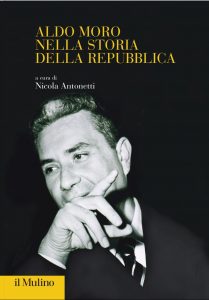
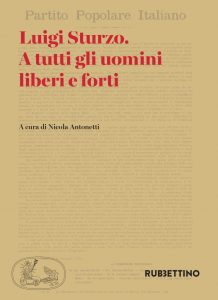
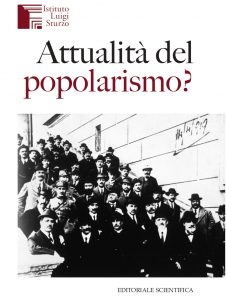
.
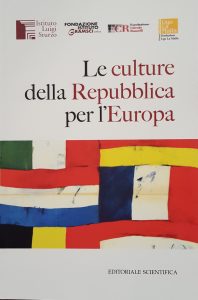
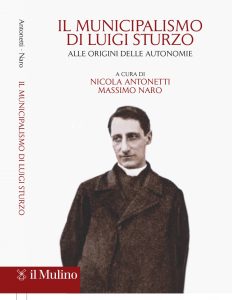
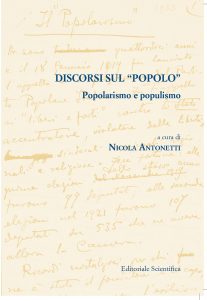
.
